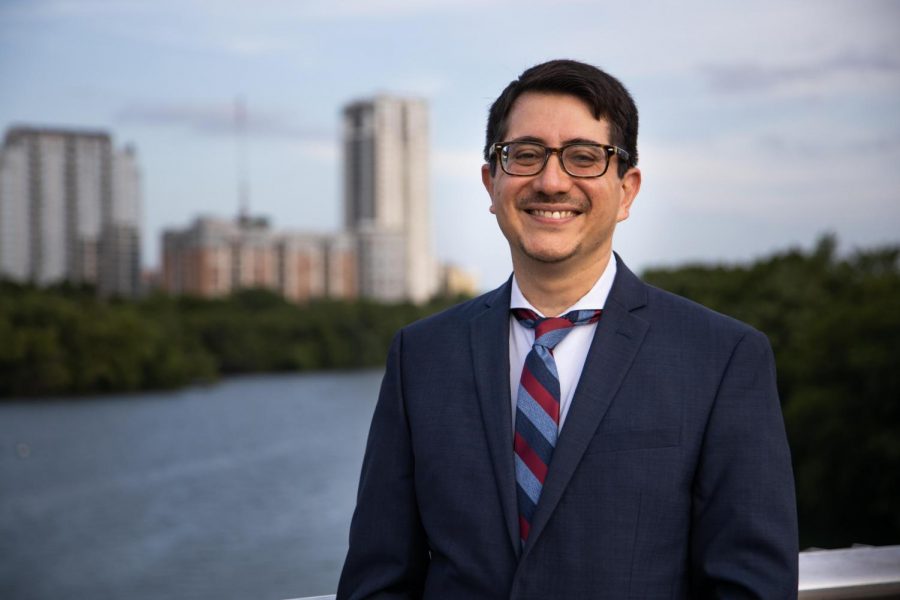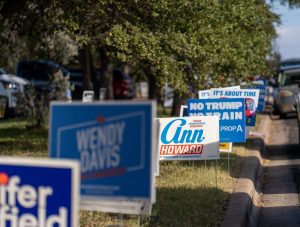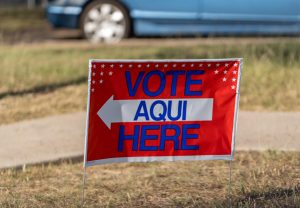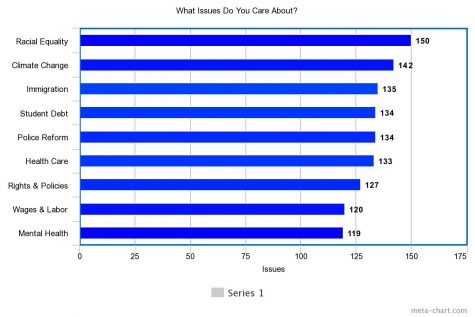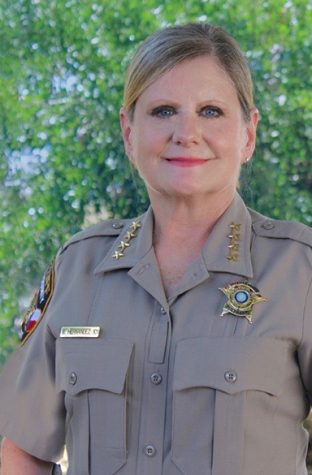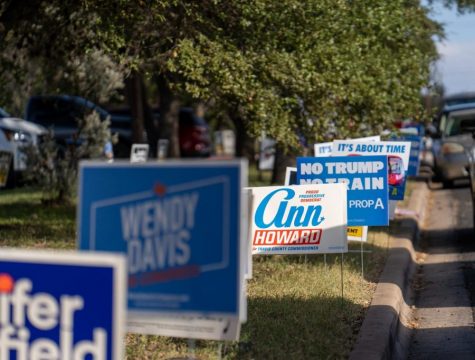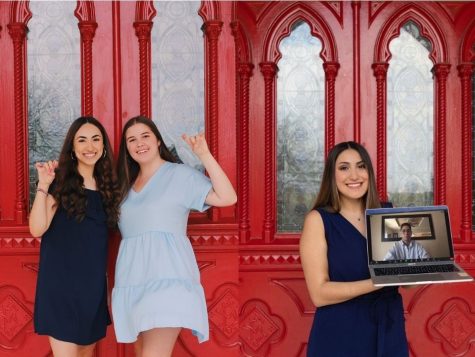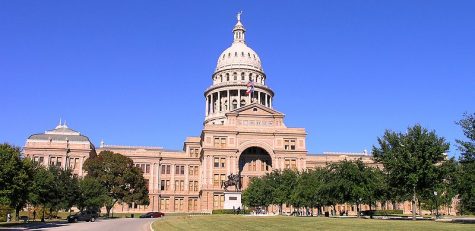Hilltoppers Vote: Q&A with Travis County District Attorney candidate José Garza
Before campaigning, Garza served on the staff team for the Workers Defense Project (WDP). WDP is a non-porift that empowers low-income workers to achieve fair employment.
José Garza is a former federal public defender, immigrant rights activist and leader of the non-profit movement Workers Defense Project. He is the democratic candidate for the Travis County district attorney race against republican candidate Martin Harry. Hilltop Views asked Garza about his campaign and plans if elected as DA.
Q: Why are you running for district attorney? If you win, how will you make a difference in the lives of Texans?
A: I’m running for district attorney because I think our criminal justice system here in Travis County and across the state is broken. I believe that if the voices of our community are brought to the forefront, we can build a criminal justice system that keeps our community safe. That lifts up working people in communities of color, where women and survivors are believed and treated with dignity and respect. And where we use our resources on dangerous and violent crimes, as opposed to using so many of our resources on low level criminal conduct.
Q: HV conducted a survey, and students listed police reform and racial equality as top issues. If elected, what will your priorities be as district attorney? Why are you the right candidate for this generation of students?
A: I have pledged to end our cash bail system here in Travis County because I believe that no person should be sitting in jail, simply because they can’t afford to get out. Not only is that grossly unjust, but it makes us less safe. When we separate people from their jobs and their families, simply because they can’t afford to pay their bail, that creates instability in families and neighborhoods. When we win we are going to end the prosecution of low level drug offenses, here in Travis County, because using our resources this way actively makes our community less safe. The other reason that we’re going to end the prosecution of low level drug offenses is that they are prosecuting those offenses is one of the greatest drivers of racial disparities in our criminal justice system. So we’re going to end the prosecution of low level drug offenses, we are going to create a criminal justice system, as I said, where women are believed, and survivors of sexual assault are treated with dignity, and respect. And we are going to build a criminal justice system where law enforcement officers are held accountable when they harm members of our community.
Q: How do you plan to hold police officers accountable for their actions?
A: One I have committed to create a public no-call list for officers who have engaged in misconduct. This means that if an officer is found to have engaged in misconduct, a factual history of racism or xenophobia, if that officer has repeatedly failed to turn on their body camera, in accordance with APD policy ,we would publish that officers name on a public list and pledge not to allow them to participate in our criminal justice system. So we don’t rely on that officer’s testimony nor rely on that officer’s police reports.
Q: What’s at stake if people don’t vote?
A: The reason that I won the runoff is because voters and young voters in particular turned out in record numbers in the middle of a runoff, which are typically very low turnout races. I believe that they voted to end racial disparities in our criminal justice system. I believe they voted for a system that takes sexual assault seriously, and to hold law enforcement accountable when they harm members of our community. That was extraordinary participation that has gotten us so close to realizing those changes. We are not there yet. We have one election left in less than three weeks. And so really what this is about is finishing what we’ve all started. The hard part comes next and three months and six months, when we actually start to make these changes when we end our cash bail system, when we end the prosecution of low level drugs, and what will matter if these changes last, is if people stay engaged. If they continue to call their council members and their county commissioner to demand these changes. And if they do, we can get there. And that, all of that is what is at stake.
Q: Do you see any particular challenges in terms of police reform in Travis County in the future?
A: You know, there are, there are people right now, spending lots and lots of money trying to defeat members of the city council who voted for a criminal justice system that reflects our values. I have an opponent right now who makes false allegations at every return, that are intended to whip up fear amongst members of our community. And be prepared to hold tight to our troops into the truth that we all have a right and a responsibility to stand up for what we know will keep our community most safe.
Q: Your opponent Martin Harry says if you were to win that “Austin is under attack.” What is your response to that?
A: Our current approach actively makes our communities less safe. It’s not radical or crazy for us to suggest that we should treat substance use disorders like the public health crisis. It’s not crazy or radical to suggest that no one should be sitting in jail simply because they can’t afford to get out. When it comes to bail, what we have said repeatedly is that any person who poses a threat to our community should be in custody, there’s no question about it. But if a person does not pose a threat to our community, they should be working. They should be with their families that creates stability, and stability, makes our community more safe.
Q: You’re also an advocate for working immigrant families. How would you help them in this position?
A: I would start by making sure that they are not disproportionately harmed by our criminal justice system simply because of their status. This means making sure to take into account decisions about charging, and sentencing recommendations, the impact on a person’s status. Immigrant families are an incredibly important part of the vibrancy of our community here in Travis County. They’re an incredibly important part of our economy, and If members of our immigrant communities don’t feel like they can trust the criminal justice system that makes our community less safe, it means that they’re less likely to report crime when they see it or participate in investigations when that’s necessary to prevent crime. And until we have a responsibility to make changes that ensure that immigrant families can feel just as safe in our communities as the rest of us do.
Q: You have a concrete plan on the path forward for Travis County. What would be your response to your opponent’s statement that you were never a prosecutor?
A: Well, a couple of things I mean. The first is to say, that for, again, for hundreds of years in this country, we have been electing career prosecutors to these jobs. And what that has resulted in is that here in the United States, we have 5% of the world’s population and 25% of the world’s jail population. We have a system with gross racial disparities, that weighs most heavily on working class communities and communities of color. We have a system that uses far too many of OUR resources, prosecuting low level drug offenses, as opposed to the kinds of serious crimes that if we prosecuted would make our community more safe. It is the definition of insanity to keep doing the same thing and think that you’re going to get different results. It is time for us to fundamentally rethink what the job of a district attorney is — the job of a district attorney is to keep our community safe by using the data and the evidence that is available to us about, you know, that we know will keep our community most safe. If the data says that continuing to prosecute low level drug offenses, actively makes us less safe, we should probably do something else. We shouldn’t continue to do it, because it’s what we’ve always done. But there are a couple of other points I want to make too, I mean, just as a matter of fact, I don’t think my opponent has ever prosecuted a case in the state court here in Texas. And I think the time he spent as a prosecutor was very limited. So, you know, by his own standard, if that’s the standard, he’s not qualified for this job.
But I don’t think it is, I think, what matters what people care about what they want in the district attorney is someone who has a vision to create a criminal justice system that works for all of us.
And quite frankly, the Republican in this race has not put forward a single idea, a single proposal about how to end racial disparities in our criminal justice system, about how to make sure that we’re using the resources we have to prosecute violent crimes and dangerous crimes. I just don’t think he takes his job very seriously.
Q: Why did you pursue this path coming from being the executive of the Workers Defense Project to politics and possibly becoming district attorney for Travis County?
A: Well, I come to this place, both from an enormous amount of frustration, but also an enormous amount of hopefulness of optimism. As I said, what I saw in my work on the border, and what I see what I’ve seen here in Travis County, leading workers defense is that what we currently have, is a system that weighs most heavily on working class people, and people of color. With, you know, when we started this race, 9% of our population is black but over 25% of the population of our jail is black. When we started this race, over 70% of people sitting in our jail every day in Travis County, had not even been convicted of a crime. They were sitting there because they couldn’t afford to pay bail. That is the reality of our criminal justice system. But I have also seen all across the country, communities come together with their district attorneys to build a criminal justice system that works for everyone. And you know the changes that we’re talking about, aren’t radical, they’re not. They’re not even really new or novel. They’re underway right now, in Dallas, Texas, in San Antonio, Texas, in Philadelphia, in Boston, they’re underway in communities all across all across the state. I believe that’s what our community wants. And I believe that our community is, you know, has already demonstrated and will continue to demonstrate that they are willing to put in the work to build that kind of criminal justice system. And that’s what inspires me.
Q: Do you have any last words to students who are still undecided on voting this election, or those who may say that their vote doesn’t matter or count?
A: Well, I think my victory in the runoff proved that wrong. Again, we are here in this moment, on the cusp of transformational change in our criminal justice system, because young people turned out in record numbers. There are so many inequities in our legal system, in our, you know, in the way the government works. And it’s not only up to young people to put us on a different path but young people have the power right now, to make some really significant changes to make sure that collectively, we’re fixing our broken criminal justice system.
Together, if young people turn out and vote, I believe we can strengthen the rights of working people, we can make sure that all people have access to health care. And we can begin to be on a different path and start to unwind the significant damage that we have done to our environment. But we can only do that if young people continue to flex their power.
Read more about José Garza in our Elections Guide online. Early voting in Travis County ends on Oct. 30 and Election Day is Nov. 3. Check out our map with polling locations for both early voting and Election Day. Stay up to date on local races and everything you need to know about voting by following our election coverage Hilltoppers Vote.


